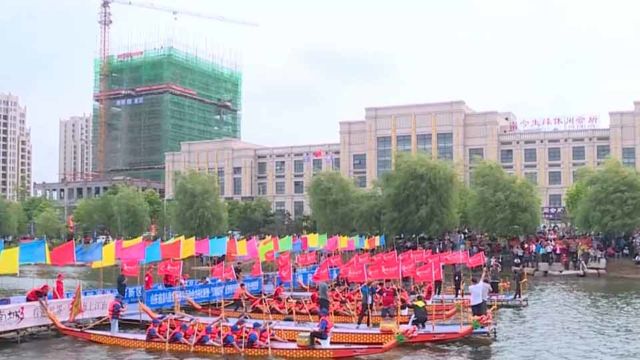Dragon boat racing is a tradition for China’s Duanwu festival that dates back more than 2,000 years. Originally, people rowed to search for the drowned body of patriotic poet Qu Yuan. It gradually developed into a long-living ritual to commemorate the patriot. In the coastal city of Weihai, a dragon boat race involving two teams of foreigners took place.
CGTN’s Liu Xinqing reports.
At this year’s Duanwu festival, more than 300 men and women gathered in Weihai, a city along China’s east coast to race. A total of 24 boats, made up of contestants from cities across Shandong province, took part in a group competition. Among them are two teams of international students studying in China.
“Every event in China has very interesting roots. So behind every event or holiday, there is a huge amount of history, and I think it’s very interesting and very exciting,” says one of the student rowers.
“I don’t know a lot about the Chinese festival, but so far we have learned a lot. This is our first time at this festival, and it’s a good experience. We are still learning more about Chinese culture — it’s a good culture,” says another international student.
The significance of the dragon boat race has transcended its face value as a modern sporty competition. It carries the weight of the rich Chinese culture and conveys the spirit of competitiveness and collective efforts.
The dragon boat race has been included on the list of national “intangible cultural heritage” in 2010 to encourage participation and preservation of this ancient tradition.
China expert Kim Dramer discusses the Dragon Boat Festival
CGTN’s Elaine Reyes spoke with China expert and archaeologist Kim Dramer on the importance of the Dragon Boat Festival to Chinese culture and heritage.
Breast cancer survivors in DC embrace dragon boat racing
Every year on the fifth day of the fifth month of the lunar calendar, Chinese communities around the world celebrate the Dragon Boat Festival. This year it fell on June 18. Washington D.C. celebrated with two days of dragon boat racing. GoPink!DC was the only team comprised of just women. The members are breast cancer survivors and supporters. Formed in 2006 by two National Institutes of Health scientists, GoPink!DC team members said that the sport helps breast cancer survivors rebuild muscle. Many breast cancer patients also experience lymphedema, a condition that creates swelling in the arms and legs. The rowing action helps alleviate some of these symptoms. The teamwork needed for the sport also strengthens bonds and build a support network.
 CGTN America
CGTN America
